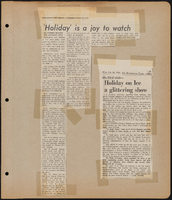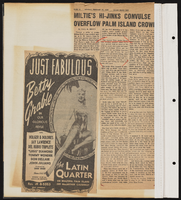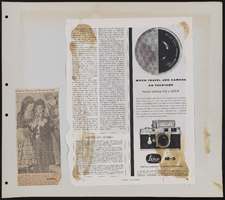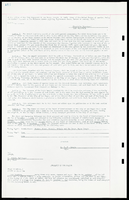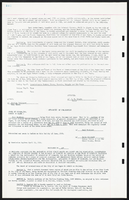Search the Special Collections and Archives Portal
Search Results

Interview with Marcell Eugene Bridges, June 12, 2004
Date
2004-06-12
Archival Collection
Description
Narrator affiliation: Downwinder (Salt Lake City, Utah)
Text

Interview with Zenna Mae (Schmid) Bridges, June 12, 2004
Date
2004-06-12
Archival Collection
Description
Narrator affiliation: Downwinder (Salt Lake City, Utah)
Text

Transcript of interview with Melody Stein by Barbara Tabach, August 16, 2016
Date
2016-08-16
Archival Collection
Description
In this interview, Stein lovingly describes various forms and mediums of art, especially rubber stamping, which included starting and managing a related craft publication, National Stampagraphic, as well as working with polymer clay. She talks about her involvement with the local Polymer Clay Guild, of which she is president, and their various projects, including Bottles of Hope and Hearts for Heroes. Stein also discusses her teaching career at the Hebrew Academy and Adelson Educational Campus.
Text
Pagination
Refine my results
Content Type
Creator or Contributor
Subject
Archival Collection
Digital Project
Resource Type
Year
Material Type
Place
Language
Records Classification

